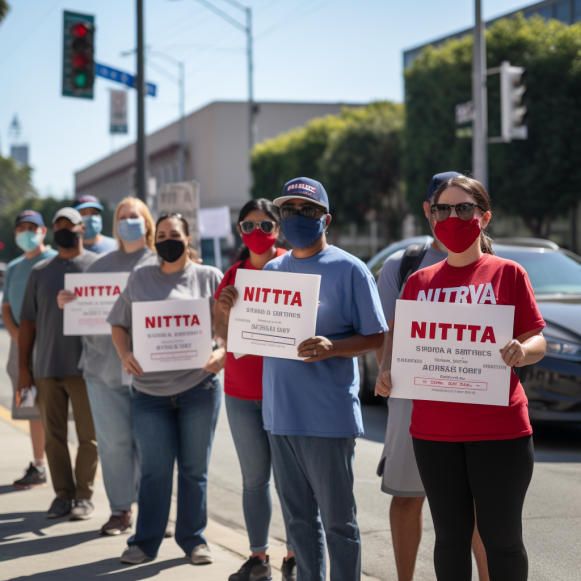New cities in the East Bay? Alameda County report considers incorporation
Unincorporated areas are rethinking what the county is providing their residents
Alameda County is one of the most densely populated and urbanized areas in the country, but recent research indicates that county services fail many people who live in unincorporated areas. As residents seek solutions, a new report has reignited a long-running debate in the East Bay about reorganizing local government.
What is the central issue? Whether or not to establish new cities.
The report provides hard numbers on the financial feasibility of establishing new municipalities, which has long been a contentious issue. Although there have been discussions for decades about turning Alameda County’s urban unincorporated areas into cities, the report by the Alameda County Local Agency Formation Commission (LAFCO) provides some framework for how it could be accomplished.
The feasibility study was created in response to inquiries from residents in unincorporated communities about what incorporation would entail, according to Rachel Jones, the commission’s executive officer. Although the report was created solely for informational purposes and will not influence the debate, Jones believes it makes sense to include such communities.
“They appear to be urban areas.” “They’re getting city services,” Jones explained. “If they’re acting like a city, they should become a city.”
The report identifies three scenarios: Castro Valley incorporating on its own, Castro Valley, Fairview, and Eden incorporating together, and Fairview and Eden incorporating.
The report estimates that the potential new cities would end up millions of dollars in debt and incur large annual deficits in all three scenarios. Those anticipated shortfalls are primarily the result of a law change implemented by Gov. Jerry Brown that diverted vehicle license fees away from cities. There have been few successful examples of incorporation in California since that time.
So, even before considering popular support, the plan may be doomed. A referendum to incorporate Castro Valley was defeated by a vote of 72% to 28% in 2002.
However, according to Peter Rosen, a member of Castro Valley City, a local group of residents who are still pushing for cityhood, the city’s previous hard stance against incorporation may be changing. Rosen claims that over the last 20 years, an increasing number of affluent tech-hub residents who have moved to the area have demanded a higher level of services that only incorporation can provide.
Many of the advantages of incorporation boil down to local control, and in the aftermath of a pandemic, those advantages are becoming increasingly clear. Rosen believes that if Castro Valley had been a city, it would have been able to apply for relief funds and make decisions about vaccinations and testing. Aside from the pandemic, becoming a city would allow residents to choose where to build new housing to meet the state’s updated housing requirements, rather than having the county dictate those plans. It would enable them to support local businesses, construct sidewalks, and provide more individualized services.
“I think locals have a better idea of where our resources should be spent than people who don’t live here or are responsible to Oakland residents,” Rosen said.
Even if incorporation does not ultimately make financial sense, Rosen and others in unincorporated areas said the report raised serious concerns about the county’s services.
“My question is: Are we getting our fair share from the county right now?” Moira Dean, a committee member, asked at an Aug. 8 meeting of the Eden Area Municipal Advisory Committee, where the incorporation report was presented. “It appears that all of this money is generated in unincorporated areas, but I don’t think we’re getting it back.”
In July, a report on housing conditions in the Eden Area — broadly defined in the report as the communities of Ashland, Cherryland, Hayward Acres, and Castro Valley — painted a damning picture of the injustices that renters face on a daily basis in Alameda County’s urban unincorporated area. Rosen stated that three of the five roads into Castro Valley flooded during the winter storms, in part due to poor creek maintenance. Weekends are no longer worked by county code enforcement.
Dean’s question, in the end, may be the report’s legacy — not incorporation, but perhaps an audit.
“Even if incorporation isn’t the answer,” Rosen said, “it’s a valid exercise to look at what we’re getting back from the county.”






